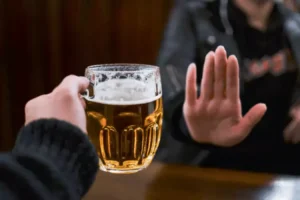
Healthcare providers define AUD as a brain disorder that affects your ability to regulate or stop drinking alcohol despite adverse impacts on your mental and physical health and professional or personal life. Like many other substance use disorders, alcohol use disorder is a chronic can alcoholism be cured and sometimes relapsing condition that reflects changes in the brain. This means that when people with the disorder are abstaining from alcohol, they are still at increased risk of resuming unhealthy alcohol consumption, even if years have passed since their last drink.
Inpatient or Outpatient Treatment

It is important to remember that AUD is not due to an individual’s lack of self-discipline or resolve. Long-term alcohol use can produce changes in the brain that can cause people to crave alcohol, lose control of their drinking and require greater quantities of alcohol to achieve its desired effects. It can also cause people to experience withdrawal symptoms if they discontinue alcohol use. Your health care provider or mental health provider will ask additional questions based on your responses, symptoms and needs. Preparing and anticipating questions will help you make the most of your appointment time.

Get the latest in health news delivered to your inbox!
As AUDs and other addictions are true mental disorders, medications can often assist in the psychological functioning of the brain to begin to make the necessary changes and adjustments. After the inpatient portion of the treatment process is over, the outpatient program can begin. When it is finished, it is highly recommended that addicted individuals stay connected to an aftercare program. There is no cure for alcoholism because of the way that the disease develops.
- “Lack of control” is central to the disease theory of alcoholism.
- The short answer to the question of whether alcoholism is a disease and if it can be cured is that while it is most certainly a disease, there is no known cure for it.
- Intentionally staying involved with addiction recovery support, also known as aftercare, can help minimize relapse.
- TSM may even lead to loss of interest in alcohol (which can feel like a cure for addiction).
- There are effective ways to treat this disease and steps you can take to help a loved one enter recovery.
- Medications can also deter drinking during times when individuals may be at greater risk for a return to drinking (e.g., divorce, death of a family member).
Importance of Ongoing Alcohol Therapy
There’s no shame in having the urge to relapse, but telling someone sooner rather than later will allow them to get you the help you need. After completing treatment, the thought of relapsing can be scary. Many people fear that relapsing means they have undone all of the hard work previously done in treatment and that they will never achieve sobriety again.
Brain Responses in Chronic Pain and Alcohol Use Disorder
Some people develop alcoholism because of pressure from their peers who are heavy drinkers too. This vicious cycle is the reason that alcoholism is considered to be a disease—it changes the body’s response to it, the brain reactions and structure, and eventually, a person’s behavior. Gordis, E. Accessible and affordable health care for alcoholism and related problems. Analysis of a survey conducted by the official organ of Alcoholics Anonymous, Q J Stud Alco, 7, 1-88.


The National Council on Alcoholism and Drug Dependence and AlcoholScreening.org offer more comprehensive self-tests. These tests can help you assess whether you misuse alcohol. Alcohol use https://ecosoberhouse.com/ disorder typically develops gradually over time. If you do feel the urge to relapse, reach out to your therapist, sponsor or sober mentor (if applicable), a friend, or a family member.
- Overcoming AUD is an ongoing process—one that can include setbacks.
- The second half of the condition, Korsakoff’s psychosis, results in the psychological symptoms.
- She stresses that the pill alone is not enough, and that healing also includes working on your mental health.
Some individuals who have stopped drinking after experiencing alcohol-related problems choose to attend AA meetings for information and support, even though they have not been diagnosed as alcoholic. People who are not alcoholic sometimes do not understand why an alcoholic can’t just “use a little willpower” to stop drinking. Alcoholics are in the grip of a powerful “craving,” or uncontrollable need, for alcohol that overrides their ability to stop drinking. So, although the word “cure” is debatable, TSM coupled with counseling, coaching, and other support may allow you to live your life free of the clutches of alcohol. Even though it isn’t foolproof, the Sinclair Method means a major change in how we treat alcohol addiction. It allows you to drink moderately if you prefer to, as long as you continue to take naltrexone.


